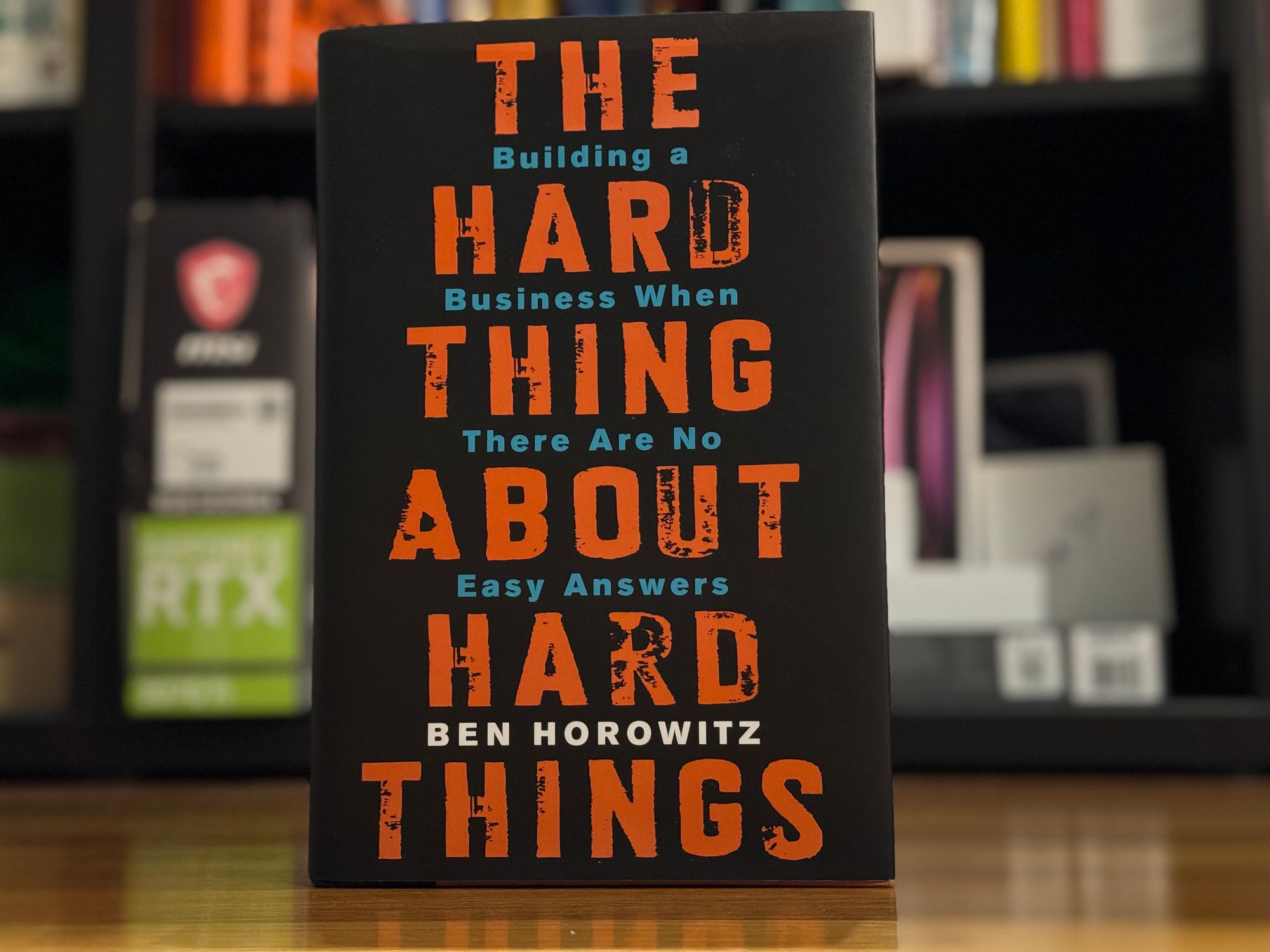The Hard Thing About Hard Things
Book notes on "The Hard Thing About Hard Things"

This is one of my favorite and most relatable books. Not only does he have similar feelings about his high school and company (as a football player and being stressed out all the time), but he also begins each chapter with a rap! This guy is so cool. I wrote about him and his book in my Stanford essays.
To be honest, I read this book 6 months ago and have book slacking off on my book summaries. Also, during my Stanford interview, Yinan asked me specific questions about the book (cuz I told him it inspired me), but I couldn't answer them lol.
Anyway, based on my notes and what I remember, this is what's important.
- Firing is hard emotionally, but if someone doesn't fit your culture or is not doing what is required/expected, fire them immediately
- Firing should not be a surprise, but you should take care of them. Leave a good impression for future employees and create good working conditions
- In layoffs, the CEO should clearly state that it's the company's fault.
- CEO is a lonely job: no one else has all the information; you can't share the burden by taking the "accepted" answer from other employees because the company will die; no one is born a CEO and must experience failure to succeed later on
- Take care of your people first, then your shareholders
- When deciding equity, everyone should be just a little unsatisfied; that's how you know you've done it right
- Be honest. People see through fake positivity, and it actually makes you look stupid. If you're in trouble, say so
- Bad news spreads automatically, so there's no point in trying to cover it up. Surprises destroy employee's trust in leadership and hurts morale
- Take care of HR, because taking care of employees is the only way to create a great company; more important than the product or profit themselves
- Spend time investing in employee training. It may take a while at first, but in the long run, it's worth it (saving a little time multiplied by 365 days a year)
- One-on-one meetings are very important, and they should not be forced. Managers should do 85% listening and less talking. If there's a problem, employees need a way to communicate that privately and safely
- Nobody cares. It doesn't matter if you fail with a great reason; spend all your energy finding the one impossible solution (also in sports psychology speech by Mr. Creighton)
